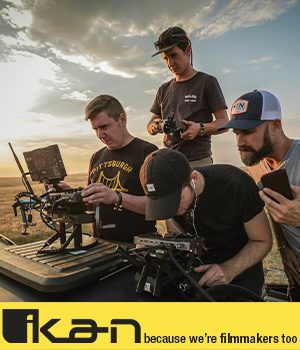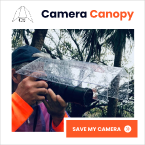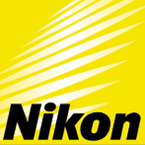- Forum
- General Discussion | Introductions | Off Topic Forum
- Photography General Discussion
- Should I go full frame?
Should I go full frame?
-
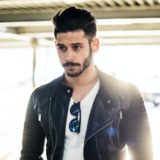 Topic Author
Topic Author
- Chase Audate
- Has the Hang of it
-
- Nikon D7500
- Followers: 68
- Posts: 95
-
Points:
2251
Post #638112
Moderators, I'm not sure where to post this question, so if this isn't the right place, feel free to move it. I got started in photography a few years ago. I have a Nikon D7500 right now and have been spending time working on pano's. I'm not great, but I've learned a lot.
I read a few boards and see many of you talking about your full frame cameras, and this got me thinking should I make the jump to full frame. Honestly the D7500 works just fine for me. No issues, however being new compared to many of you, I know there is plenty I don't know. So if full frame will unknowing to me, unlock new opportunities, I would want to know.
When did you move to full frame?
-
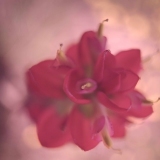
- the four vignettes
- Has the Hang of it
-
- D850,D4s
- Followers: 57
- Posts: 64
-
Points:
1862
Post #638139
I'd seriously think about if you need FF before selling your crop sensor body and lenses. If you're happy with them, that's all that really counts.
Edit: I stared on FF with a D700 a couple of years ago, f you're curious
-
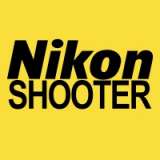
- Nikon Shooter
- Oh Wise One
-
- 3S 3X 810 850
- Followers: 197
- Posts: 13795
-
Points:
88932
Post #638145
featured to tackle the task.
Light is free… capturing it is not!
-
 Topic Author
Topic Author
- Chase Audate
- Has the Hang of it
-
- Nikon D7500
- Followers: 68
- Posts: 95
-
Points:
2251
Post #638146
I was going to keep my D7500 and just get another body. A full frame one.
I'm sorry I don't understand what you are saying here: "Edit: I stared on FF with a D700 a couple of years ago, f you're curious "
-

- Nikon Shooter
- Oh Wise One
-
- 3S 3X 810 850
- Followers: 197
- Posts: 13795
-
Points:
88932
Post #638147
Chase Audate wrote: just get another body. A full frame one.
Two bodies of the same format will go, IMO
but don't go with two formats!
Light is free… capturing it is not!
-

- spudalicious
- Has the Hang of it
-
- Followers: 90
- Posts: 55
-
Points:
3028
Post #638148
- Greater dynamic range
- Better high ISO performance
- Shallow DOF (more bokeh)
Speaking strictly of gear, as the four vignettes touches on, a good quality lens will make big improvements before a larger sensor.
On other notes, I found that the biggest leaps in improvement in my personal photography have come from practice and learning. I still have quite a way to go but, this has had a much greater impact to the quality of my photography than gear has. I personally shoot M43, which has a smaller sensor than your rig. I do run into limitations from time to time but, I'm not quite sure I'm ready to move to a more costly and physically larger/weightier system. there are many benefits to shooting a crop sensor camera as well.
Post #638149
Full size sensors are really good for wildlife (Can't use a crop with telephotos, I don't think), fast moving subjects, and macro. If I were going in to portrait, I would have went with the 24mp. With Sony, the A7III actually has slightly better low light/ISO performance than the A7rIII. It's not much, but I have noticed it. It's a result of the above, if I remember correctly. I use a flash for most of my macro, so no big deal. AF performance was my top priority in relation to mirrorless, and the a9 is just too far out of reach for my wallet.
-
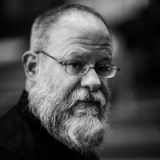
- garyrhook
- Oh Wise One
-
- Nikon D850, Nikon D750, Panasonic G7K
- Followers: 912
- Posts: 11103
-
Points:
67681
Post #638163
Chase Audate wrote: Aside from being an obvious pick for beginners, what are the reasons others would want a crop sensor camera over full frame?
I was going to keep my D7500 and just get another body. A full frame one.
I'm sorry I don't understand what you are saying here: "Edit: I stared on FF with a D700 a couple of years ago, f you're curious "
I think that was "I started on a full frame body with a D700 a couple of years ago, if you're curious." Gotta learn to fill in the blanks.
It's not a matter of wanting a crop frame over a full frame (other than the price of glass) it's, "why would I want a full frame over a crop?" And the answer is, maybe you don't. Full frame sensors help with things like shallow DoF, shooting in low light situations, wider angle of view for a given lens. If you're shooting landscapes, you probably don't hit any of those points.
And doing multi-shot panoramas will give you more pixels than a single image from any full frame sensor.
So: you don't need a different body, based upon the information provided.
-

- garyrhook
- Oh Wise One
-
- Nikon D850, Nikon D750, Panasonic G7K
- Followers: 912
- Posts: 11103
-
Points:
67681
Post #638168
Troponin wrote: Don't forget that full frame has different phase detection arrangement/points, which affect AF performance as well as light capabilities.
Full size sensors are really good for wildlife (Can't use a crop with telephotos, I don't think), fast moving subjects, and macro. If I were going in to portrait, I would have went with the 24mp. With Sony, the A7III actually has slightly better low light/ISO performance than the A7rIII. It's not much, but I have noticed it. It's a result of the above, if I remember correctly. I use a flash for most of my macro, so no big deal. AF performance was my top priority in relation to mirrorless, and the a9 is just too far out of reach for my wallet.
N.B. The term "telephoto" means the focal length is longer than the physical lens. There's no reason one can't use a telephoto lens on any camera, much less a crop sensor.
Having had a Nikon D5100, I an assure you that a long lens works just fine on an APS-C body.
For Nikon, AF performance is tied to the body + lens. I don't know that you can make a blanket statement that "this is always going to be better." I could be wrong.
The plus with some smaller sensors is the greater pixel density. Combined with a long lens, one can capture plenty of detail. With the direction the newer full frame sensors are going, however, there' less advantage to the smaller sensors in this area (in terms of APS-C vs. 35mm full).
-

- Shadowfixer1
- Photo Elder
-
- Olympus OMD E-M1 MKII
- Followers: 1349
- Posts: 5551
-
Points:
73205
Post #638186
Actually many wildlife photographers prefer crop sensor cameras for sports, action and wildlife. The full frame has an advantage in low light but the crop sensor has an advantage in angle of view for wildlife.Troponin wrote: Don't forget that full frame has different phase detection arrangement/points, which affect AF performance as well as light capabilities.
Full size sensors are really good for wildlife (Can't use a crop with telephotos, I don't think), fast moving subjects, and macro. If I were going in to portrait, I would have went with the 24mp. With Sony, the A7III actually has slightly better low light/ISO performance than the A7rIII. It's not much, but I have noticed it. It's a result of the above, if I remember correctly. I use a flash for most of my macro, so no big deal. AF performance was my top priority in relation to mirrorless, and the a9 is just too far out of reach for my wallet.
Not sure why you thought telephoto lenses can't be used on crop sensor cameras. Telephoto has nothing to do with compatibility. In my opinion I think the work better on crop sensor cameras since they only use the sweet part (center) of the glass.
-

- Shadowfixer1
- Photo Elder
-
- Olympus OMD E-M1 MKII
- Followers: 1349
- Posts: 5551
-
Points:
73205
Post #638187
I will say this and not trying to be a smart azz. If you don't know what your missing by having a full frame for the type of images you make, then you don't need one. If you need full frame you will know why your camera is failing you and your requirements.Chase Audate wrote: Roll out the newbie jokes! I just signed up here.
Moderators, I'm not sure where to post this question, so if this isn't the right place, feel free to move it. I got started in photography a few years ago. I have a Nikon D7500 right now and have been spending time working on pano's. I'm not great, but I've learned a lot.
I read a few boards and see many of you talking about your full frame cameras, and this got me thinking should I make the jump to full frame. Honestly the D7500 works just fine for me. No issues, however being new compared to many of you, I know there is plenty I don't know. So if full frame will unknowing to me, unlock new opportunities, I would want to know.
When did you move to full frame?
-

- garyrhook
- Oh Wise One
-
- Nikon D850, Nikon D750, Panasonic G7K
- Followers: 912
- Posts: 11103
-
Points:
67681
Post #638208
Shadowfixer1 wrote: I will say this and not trying to be a smart azz. If you don't know what your missing by having a full frame for the type of images you make, then you don't need one. If you need full frame you will know why your camera is failing you and your requirements.
Actually, this.
Post #638218
Shadowfixer1 wrote:
Actually many wildlife photographers prefer crop sensor cameras for sports, action and wildlife. The full frame has an advantage in low light but the crop sensor has an advantage in angle of view for wildlife.Troponin wrote: Don't forget that full frame has different phase detection arrangement/points, which affect AF performance as well as light capabilities.
Full size sensors are really good for wildlife (Can't use a crop with telephotos, I don't think), fast moving subjects, and macro. If I were going in to portrait, I would have went with the 24mp. With Sony, the A7III actually has slightly better low light/ISO performance than the A7rIII. It's not much, but I have noticed it. It's a result of the above, if I remember correctly. I use a flash for most of my macro, so no big deal. AF performance was my top priority in relation to mirrorless, and the a9 is just too far out of reach for my wallet.
Not sure why you thought telephoto lenses can't be used on crop sensor cameras. Telephoto has nothing to do with compatibility. In my opinion I think the work better on crop sensor cameras since they only use the sweet part (center) of the glass.
I tried to edit my post, but it was timed out. I meant full frame telephoto lenses are out with a crop sensor, but then it might not have been relevant.
-

- Shadowfixer1
- Photo Elder
-
- Olympus OMD E-M1 MKII
- Followers: 1349
- Posts: 5551
-
Points:
73205
Post #638219
I'm not sure what you are trying to say but if you are saying crop sensor cameras can't use full frame telephoto lenses, that is completely wrong. I used to use a Nikon full frame 80-400 lens on my m43 camera. The size of the sensor doesn't matter as long as it is the same or a smaller format than the lens is made for. The issue is when trying to use crop lenses on larger formats. I may be misunderstanding what you are saying and if I am I apologize.Troponin wrote:
Shadowfixer1 wrote:
Actually many wildlife photographers prefer crop sensor cameras for sports, action and wildlife. The full frame has an advantage in low light but the crop sensor has an advantage in angle of view for wildlife.Troponin wrote: Don't forget that full frame has different phase detection arrangement/points, which affect AF performance as well as light capabilities.
Full size sensors are really good for wildlife (Can't use a crop with telephotos, I don't think), fast moving subjects, and macro. If I were going in to portrait, I would have went with the 24mp. With Sony, the A7III actually has slightly better low light/ISO performance than the A7rIII. It's not much, but I have noticed it. It's a result of the above, if I remember correctly. I use a flash for most of my macro, so no big deal. AF performance was my top priority in relation to mirrorless, and the a9 is just too far out of reach for my wallet.
Not sure why you thought telephoto lenses can't be used on crop sensor cameras. Telephoto has nothing to do with compatibility. In my opinion I think the work better on crop sensor cameras since they only use the sweet part (center) of the glass.
I tried to edit my post, but it was timed out. I meant full frame telephoto lenses are out with a crop sensor, but then it might not have been relevant.
- Forum
- General Discussion | Introductions | Off Topic Forum
- Photography General Discussion
- Should I go full frame?
Latest Reviews
Nikon’s retro-looking Nikon Zfc is anything but retro. Under its classic body is a host of features and amenities that make it a worthwhile compact mirrorless camera for 2024.
The Canon EOS R50 is one of the newest R-system cameras from Canon. Is it worth your money? Find out all the details you need to know in this comprehensive review.
The Sony FE 70-200mm f/2.8 GM OSS II is Sony’s flagship mirrorless zoom lens. As such, it’s loaded with features and has a top-shelf build quality that makes it a top pick!
The Leica SL2-S is an attractive, premium mirrorless camera with photo and video specs that are sure to impress. And with the legendary Leica name, you know this camera exudes quality!
Forum Top Posters
-
1TCav 9 posts
-
2Razky 5 posts
-
3CharleyL 5 posts
-
4Randy Shaw 5 posts
-
5Matt VanDyke 4 posts
-
6Prago 4 posts
-
7EOS_Fan 3 posts
-
8Conner 3 posts
-
9Hassner 3 posts
-
10Steve Zahra 3 posts
Latest Articles
The Olympus OM-D E-M10 Mark IV is a micro four thirds camera released in 2020. It’s an entry-level system along with the OM-D E-M5 Mark III. Use this guide to determine which one is best for you!
Blue hour photography might not be as well known as golden hour photography, but it is every bit as good a time to create epic images of landscapes. Learn how in this quick tutorial!
Nikon’s retro-looking Nikon Zfc is anything but retro. Under its classic body is a host of features and amenities that make it a worthwhile compact mirrorless camera for 2024.
Moving from taking snapshots of your dog to creating beautiful images doesn’t have to be that difficult! Use the tips outlined in this dog photography guide, and you’ll get better results in no time.
Acrylic print photos are a beautiful way to display your favorite images. But they don’t come without some questions. Get all the answers you need about this medium in this guide!
Where do you get your landscape photography inspiration? Is it from masters like Ansel Adams? Or perhaps viewing art from other genres? We’ve got these and a few other sources for you to check out!
The Canon EOS R50 is one of the newest R-system cameras from Canon. Is it worth your money? Find out all the details you need to know in this comprehensive review.
Too often, affordable online printing companies don’t meet your expectations of what a print should look like. But there are some choices that combine affordability with superb quality!











